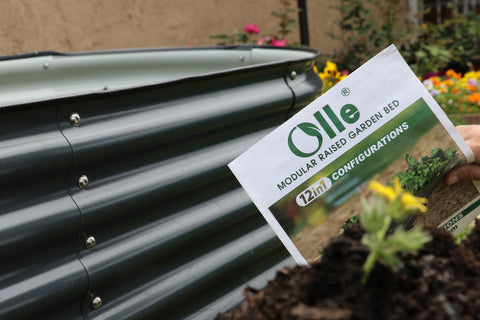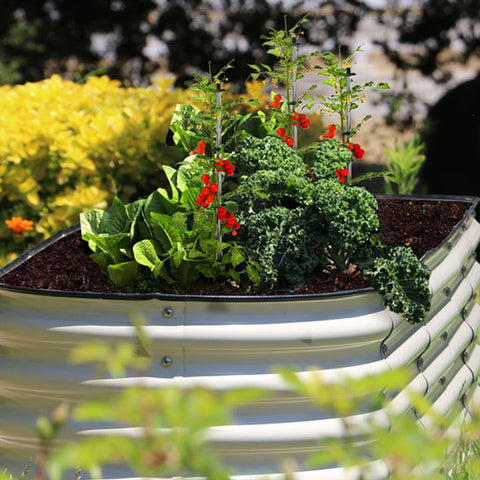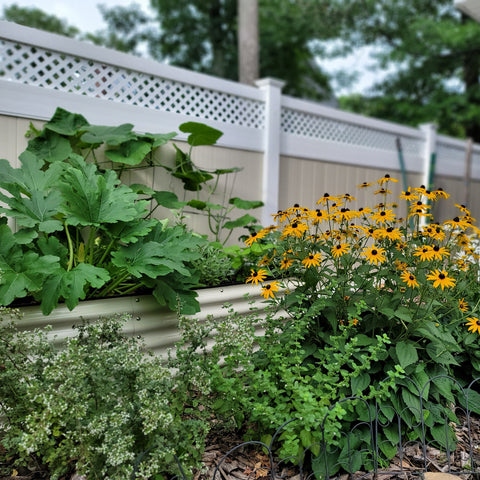Knowledge from Olle Garden Bed: 4 Herbs That Thrive In The Shade
Herbs are one of the most popular plants in gardens for many reasons. They smell good, add color to any landscape, attract pollinators, but most importantly, enrich the taste of many dishes. If you want to take food to a new level, it's always great to have some on hand! The following content also has some reference value for raised garden beds.
Herbs grow best in full sunlight, but don't be discouraged if your property has some shadows. Some herbs thrive under these conditions. Read on to learn all about them!

Parsley
Parsley is a famous herb that you can find in most American houses. Parsley is a common supplement to many dishes, originating in the Mediterranean region. Although technically it is biennial, gardeners usually plant it once a year in cold and long winter areas.
Although there are more than 30 kinds of parsley, the two most popular ones are curly leaf and Italian parsley. Curly parsley can grow from 8 inches to 14 inches. Because of its dense clumps, it is very suitable for growing in containers, garden beds and even as a garden boundary. Italian parsley can grow up to 3 feet. Its leaves are much sweeter than other types of parsley and are very suitable for cooking.
Parsley grows best in sunny places, where the sun shines directly for six to eight hours, but it can also bear the shadow of only a little light. However, feed it with a balanced liquid fertilizer for best results and do not let it dry. You should water parsley at least once a week to ensure that its roots remain moist during the growing season.
Mint
Mint is a perfect complement to refreshing meals and drinks. It can also add charm and wonderful fragrance to your garden, but as it is a dynamic grower, please do not let it take over your property!
The taste and smell of mint vary from species to species. The most common mints you can find are peppermint and spearmint. Mint with sharp dark green leaves, relatively small. However, spearmint leaves are brighter, longer, and have sharp ends.
Mint likes to grow in warm days and cool nights. Therefore, if you live in a hot and dry area, it is better to plant it in a cool place.
Provide it with moist, fertile and slightly acidic soil, and water it regularly during the growing season, at least 1-2 inches per week. However, be careful not to over water as this can lead to disease.

Honeybee flower
Lemon Melissa officinalis, also known as Melissa officinalis, belongs to the mint family. It shares many characteristics with mint, such as flavor, dark pointed leaves and the ability to grow rapidly. Lemon Melissa is well known for its lemon scent and calming properties, but you can also add it to dishes and salads.
It is a cold resistant plant, which means you can plant it almost anywhere, but when the temperature drops below 30 degrees, it will not survive in extremely cold conditions. It grows to 2 feet and likes sunny places. However, if you live in a very hot area, please plant it in a cool place.
It likes fertile and well drained soil, so it is mixed with some mulch or compost to add organic matter. In addition, deep watering is used to ensure that the soil is always wet so that water can reach the roots.
Chinses angelica
Angelica sinensis, or wild celery, is a biennial plant. Angelica archangelica and Angelica sinensis species have long been used in traditional medicine. These include digestive aids and anxiety relief People also drink tea made from its leaves as a skin freshener or eye wash. However, you can also use its stems as a supplement to salads.
Angelica sinensis can grow up to 6 feet tall. It likes cold and cool places and has little sunlight. It also likes rich and moist soil. When you plant it, be sure to leave some space because it can spread from 2 to 4 feet.

Quiet Herbitat
Herbs are the perfect choice for growing in the garden. You can plant them together in containers, or you can use many ideas to make your yard look more attractive. Although many herbs like to receive a lot of direct sunlight, some will be great when you plant them in a cooler place. Whichever method and place you choose, make sure you know how to store herbs when they are fresh to make the most of them!
